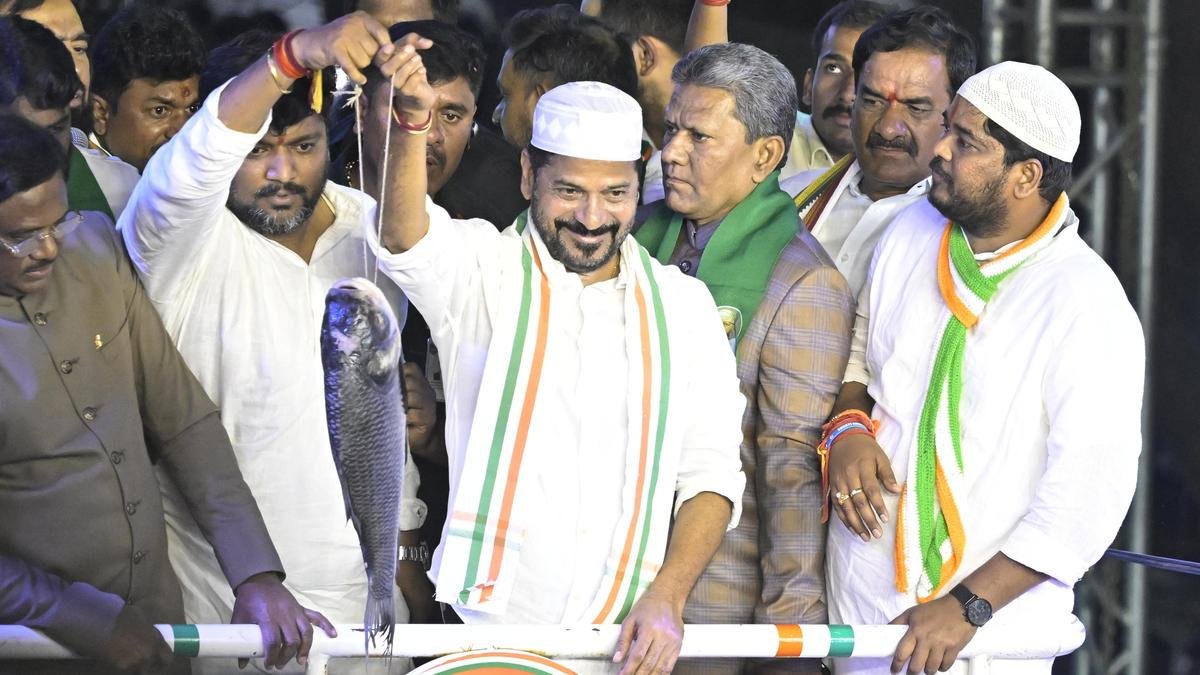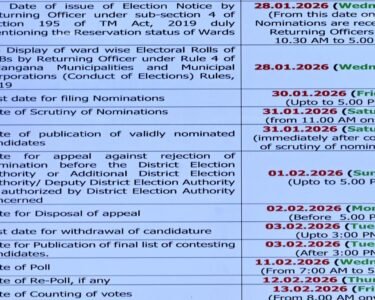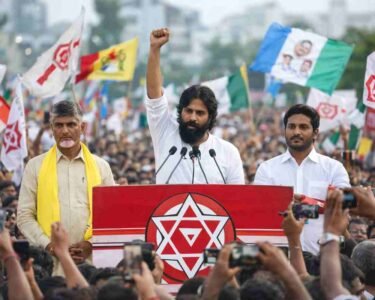In a recent sharp exchange, Chief Minister Revanth Reddy publicly mocked K. T. Rama Rao’s challenge for a debate, suggesting instead that KTR should first engage with the constituency MLA of the Cantonment area. The comments came as part of a broader campaign flare-up between the ruling Congress government in Telangana and the opposition Bharat Rashtra Samithi (BRS).
Revanth made his remarks while campaigning in the lead-up to the by-election in the Jubilee Hills constituency. He claimed that KTR’s challenge was less about substantive issues and more about theatre, insisting that real accountability lay in local governance and representation. According to him, KTR should “go and debate” with the MLA of the Cantonment area and show what has been done rather than issue broad statements.
The Background: Debate Challenge and Political Theatre
Earlier this year, KTR accepted a public debate invitation from Chief Minister Revanth on farmers’ issues, governance and the performance of the Congress government. The platform chosen was the Press Club in Hyderabad, where KTR said he was willing to debate “anywhere, anytime”. However, the CM’s side later questioned the logistics, venue, timing and seriousness of the event.
In his campaign remarks, Revanth seized upon this uncertainty, suggesting that KTR’s debate offer was a strategic gimmick rather than a meaningful forum for accountability. In doing so, he turned the tables by offering that KTR instead debate with the Cantonment MLA, implicitly suggesting that local issues and local representation matter more than televised face-offs.
Smokescreen or Real Issue: Local Representation Takes Centre Stage
By shifting the focus from a glamorous debate to the Cantonment area MLA, the CM signalled two things: one, that governance at the grassroots (constituency level) matters more than high-profile rhetoric; and two, that the opposition’s performance at the local level is vulnerable to attack.
Revanth implied that KTR, while grandstanding about debates and high-stakes issues, had neglected his responsibilities in constituencies like the Cantonment area. He alleged that the MLA there—aligned with the Congress side—had already produced government orders and sanction letters (worth over ₹4,000 crore) for the area, thereby questioning KTR’s narrative of neglect.
By doing so, Revanth attempted to divert attention from macro-level tussles and steer the discussion toward deliverables and documents at the constituency level. The implication: talk is cheap, proof is in official orders and sanctioned funds.
The Argument: Deliverables vs. Drama
At its core, the exchange frames a political argument: is governance about sound-bites, debates and media moments—or is it about sanctioned schemes, local leadership, constituency work and tangible outcomes?
Revanth’s message was clear: the Congress government wants to emphasise the latter. He used the Cantonment MLA’s example to suggest that funds, orders and work have already been approved and that KTR’s challenge is less credible given that paperwork is in place. On the other hand, KTR’s camp has accused the government of broken promises, lack of implementation and evasion of questions.
In the public domain, debates often capture attention, but for voters on the ground it is delivery that counts—the roads built, services rendered, constituency issues resolved. Revanth’s mock challenge to KTR leveraged this sentiment.
Strategic Motives and Political Timing
This verbal sparring arrives at a politically opportune moment. The by-election in Jubilee Hills (and its surrounding areas) has drawn national attention; both Congress and BRS are keen to demonstrate dominance in Hyderabad.
By calling out KTR’s challenge, Revanth not only aimed to deflate the BRS narrative of “we’re ready to debate you” but also to assert that his government is about work over word-play. Notably, by emphasising the Cantonment MLA and local delivery, he sought to shift the campaign discourse away from headline-grabbing controversies (like the Formula E race Hyderabad case) and toward constituency-level trust.
Furthermore, this tactic helps Revanth position himself as a challenger of the opposition’s elite-politics image: instead of big debates and rhetorical storms, he underscores local realities and everyday governance.
Potential Risks and Gains
Gains for Congress:
- Reinforces the government’s image as being grounded in local issues and delivery.
- Undermines the opposition’s narrative of being the only voice of accountability by questioning their local records.
- Redirects campaign focus from scandals to service.
Risks for Congress:
- If the Cantonment MLA’s claims of sanctioned funds are shown to be unimplemented or delayed, the tactic could backfire.
- Over-focusing on debates may still let the opposition control the headline narrative.
Gains for BRS:
- KTR’s readiness to debate can strengthen his image as willing to engage and accountable.
- If he successfully highlights implementation gaps, the debate could grant credibility.
Risks for BRS:
- If they fail to control the narrative and appear more about theatrics than substance, the public may be swayed.
- Local records may surface and be used against them in constituencies.
What Voters Should Watch
As this duel unfolds, several key indicators will matter:
- Implementation vs. sanction: Are the funds and orders mentioned being translated into visible work in the Cantonment area and elsewhere?
- Debate outcome: Will the promised public debate between Revanth and KTR (or their proxies) actually materialise, and will substance matter more than show?
- Local sentiment: How do residents in the Cantonment area view their MLA’s record and the broader party politics? Are local issues resonating more than larger controversies?
- Headline vs. detail: Will the campaign remain about big accusations, or shift to actual governance and delivery metrics?
Conclusion
The mockery by Chief Minister Revanth Reddy of KTR’s debate challenge — and his redirection toward the Cantonment area MLA — is far more than a quip. It is a strategic move to reframe the political contest: from dramatic face-offs and media hype to local accountability and dismantled opposition narratives.
For Congress, the aim is to underscore that governance is measurable, localised and documentable. For BRS, the challenge is to rise above rhetoric, match claims with delivery and steer the debate back to their strengths. Ultimately, the victor in this duel may very well be determined not by sound-bites or televised debates, but by what is seen, felt and delivered at the grassroots.







